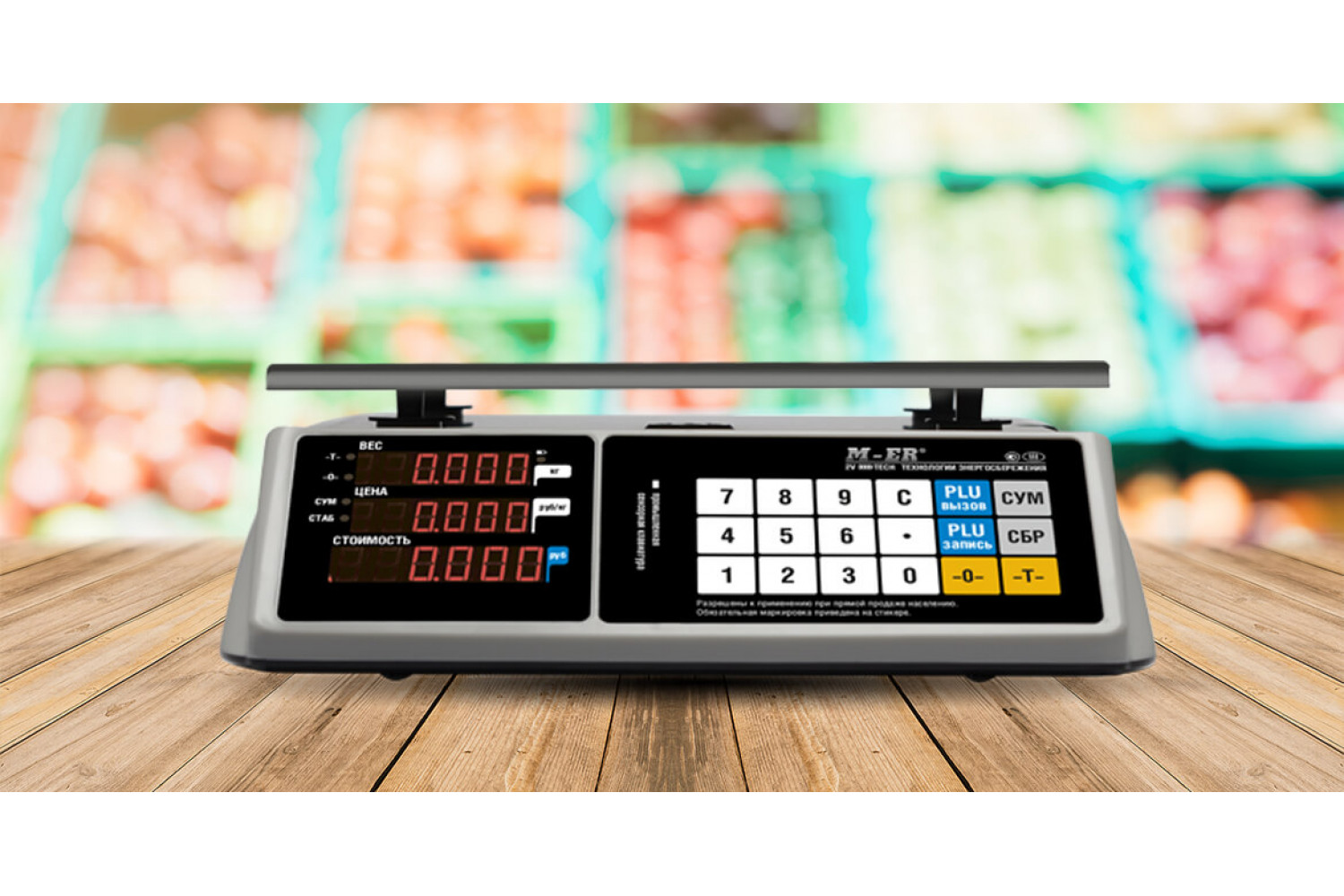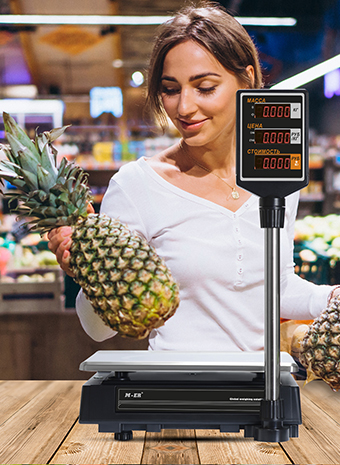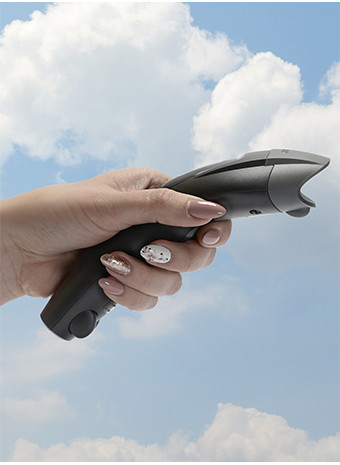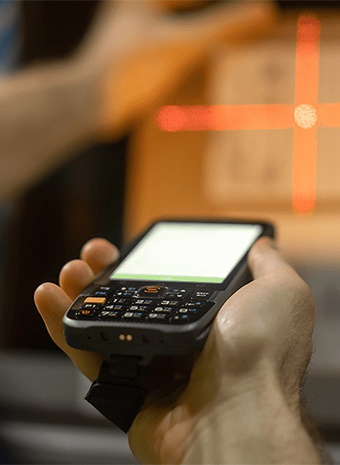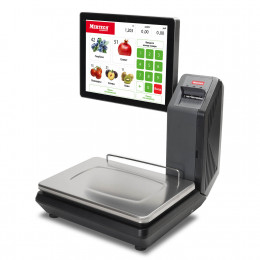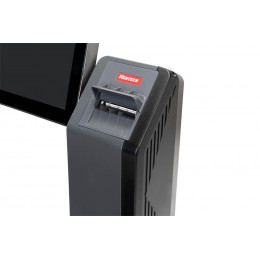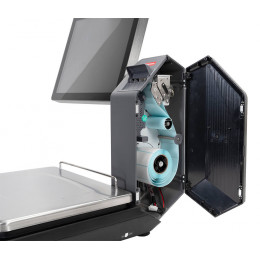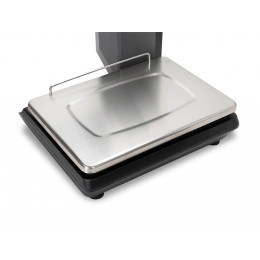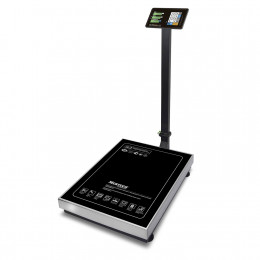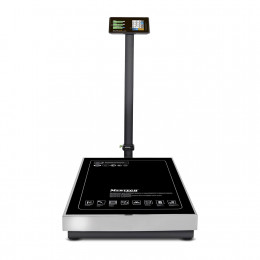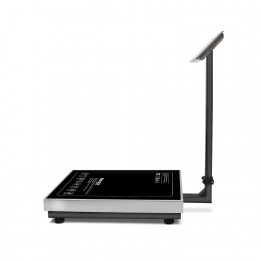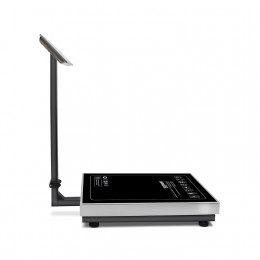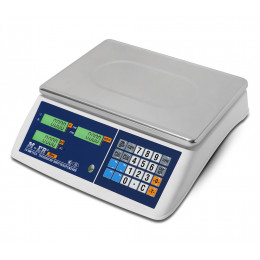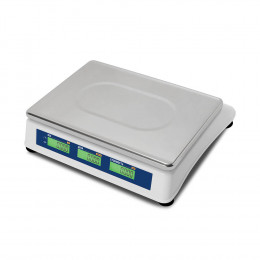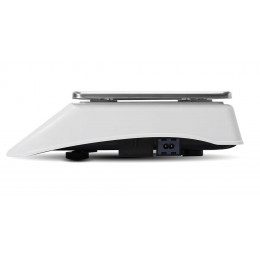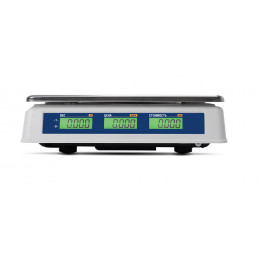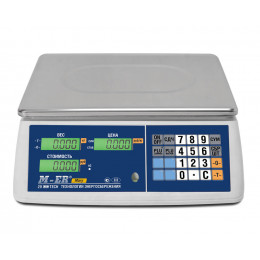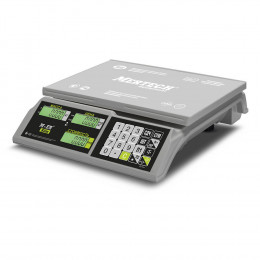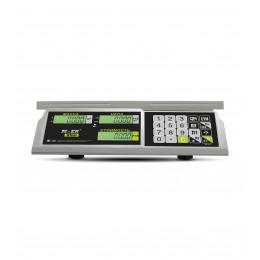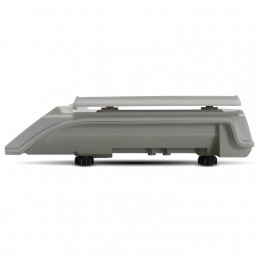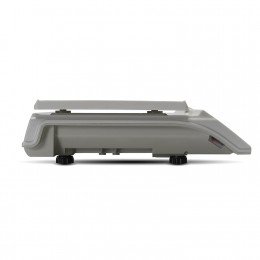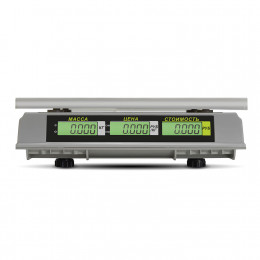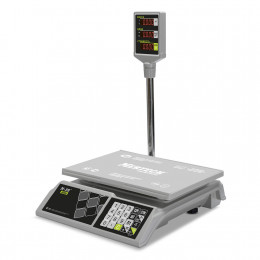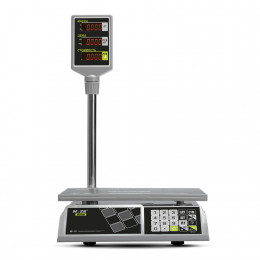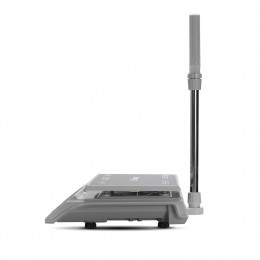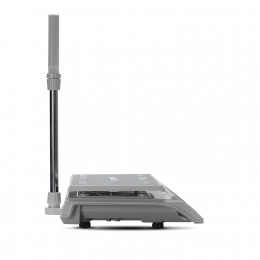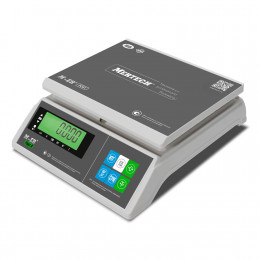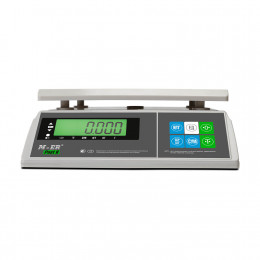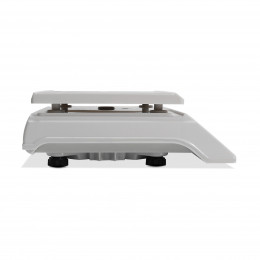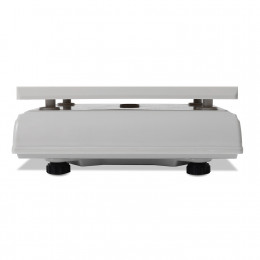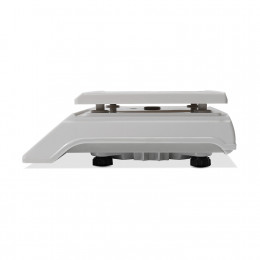Choosing weighing equipment is more than just a technical task; it's an important step in organizing retail or warehouse operations. For stores, markets, logistics, and manufacturing companies in Uzbekistan, the accuracy and reliability of weighing directly impacts customer trust, service speed, and accurate accounting.
With the development of digital commerce and automation, there's a growing demand for modern electronic scales that not only display weight but also calculate costs, transmit data to accounting systems, and integrate with cash registers. Such solutions are especially in demand in Tashkent, Samarkand, Andijan, Fergana, and other trade-intensive regions.
For warehouses, a robust enclosure, a large weighing capacity, and resistance to external conditions (dust, humidity, and temperature fluctuations) are essential. Here, scales become an integral part of the logistics chain.
MERTECH products are certified for use in Uzbekistan. This means that the scales are officially approved for use in retail, markets, and warehouses, meet accuracy and metrological verification requirements, and ensure the legality of sales operations.
In this article, we'll explain the different types of scales available, their differences, and how to choose the right model for your business—whether it's a small retail outlet, a restaurant, a logistics center, or a wholesale warehouse.
Scale Classification: What Models Are Available?
Modern weighing equipment is divided into several categories based on its purpose and operating conditions. To make the right choice, it's important to understand the applications for which different types of scales are effective.
Retail Scales
Retail scales are used in stores, markets, and kiosks. They not only display the weight but also automatically calculate the cost of the item. A dual-sided display provides clarity for both the customer and the seller. They are often equipped with price memory, a totalizing function, a tare counting mode, and even a built-in receipt printer.
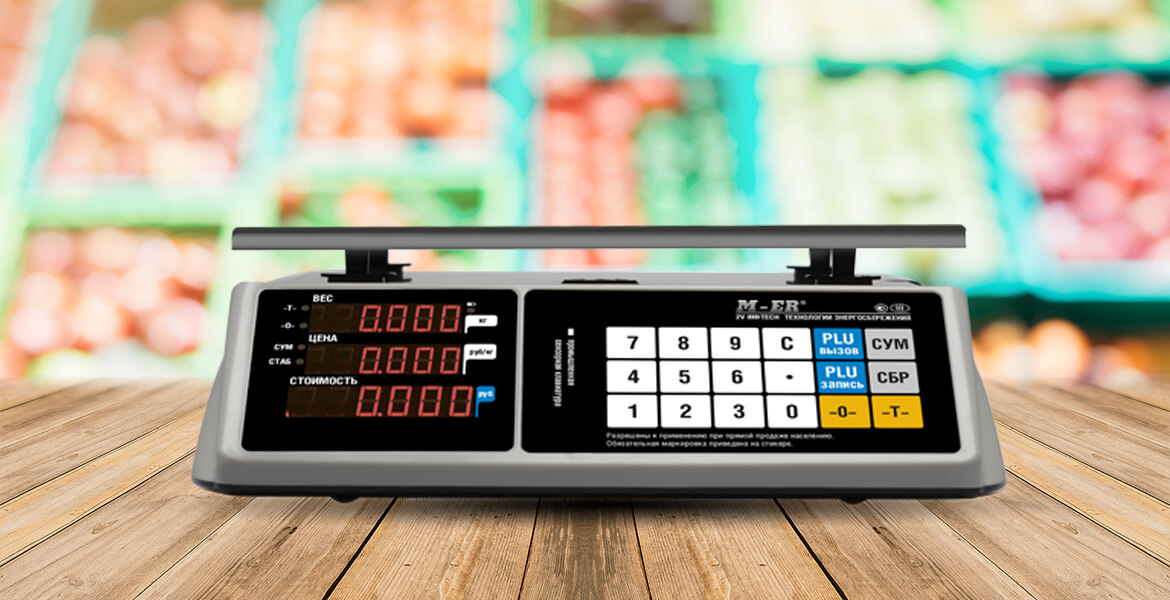
Packing Scales
Packing scales are designed for weighing and packaging goods without calculating the cost. They typically have a single-sided display, a minimal set of functions, and simple operation. These scales are in demand in warehouses, manufacturing plants, bakeries, self-service stores, and even restaurants—anywhere where quickly and accurately packaging goods is important.
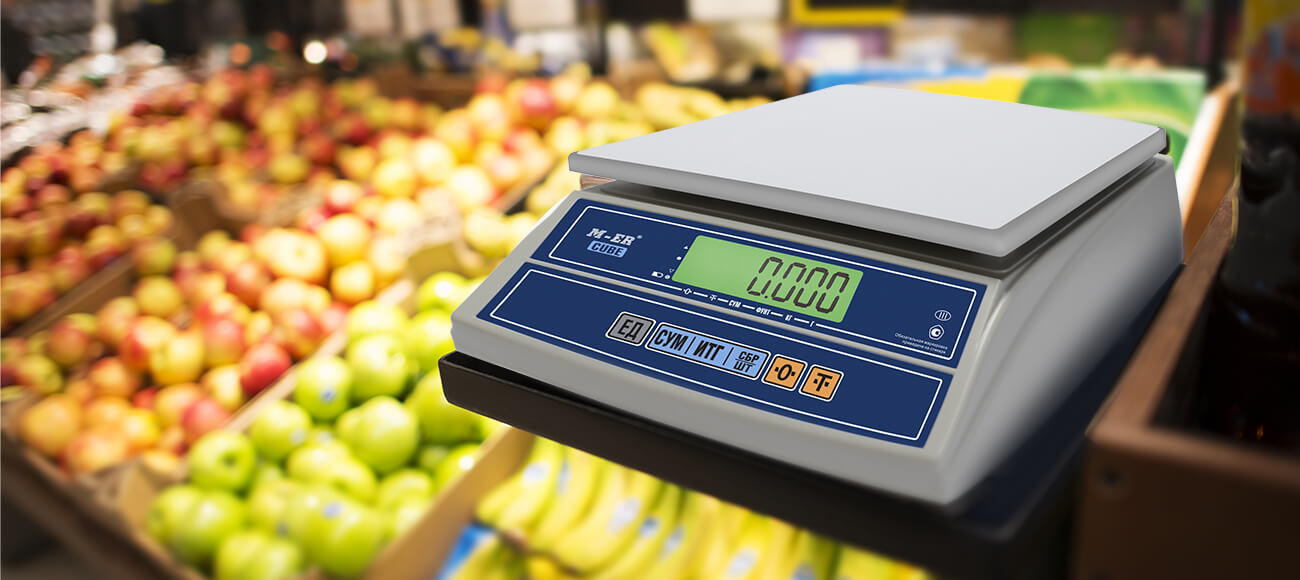
Desktop Scales
Desktop scales are compact devices with a maximum load of 3 to 32 kg. They are installed on checkout counters, tables, or display cases. Thanks to their small size and accuracy, they are convenient for retail, cafes, pharmacies, bakeries, and small production areas.
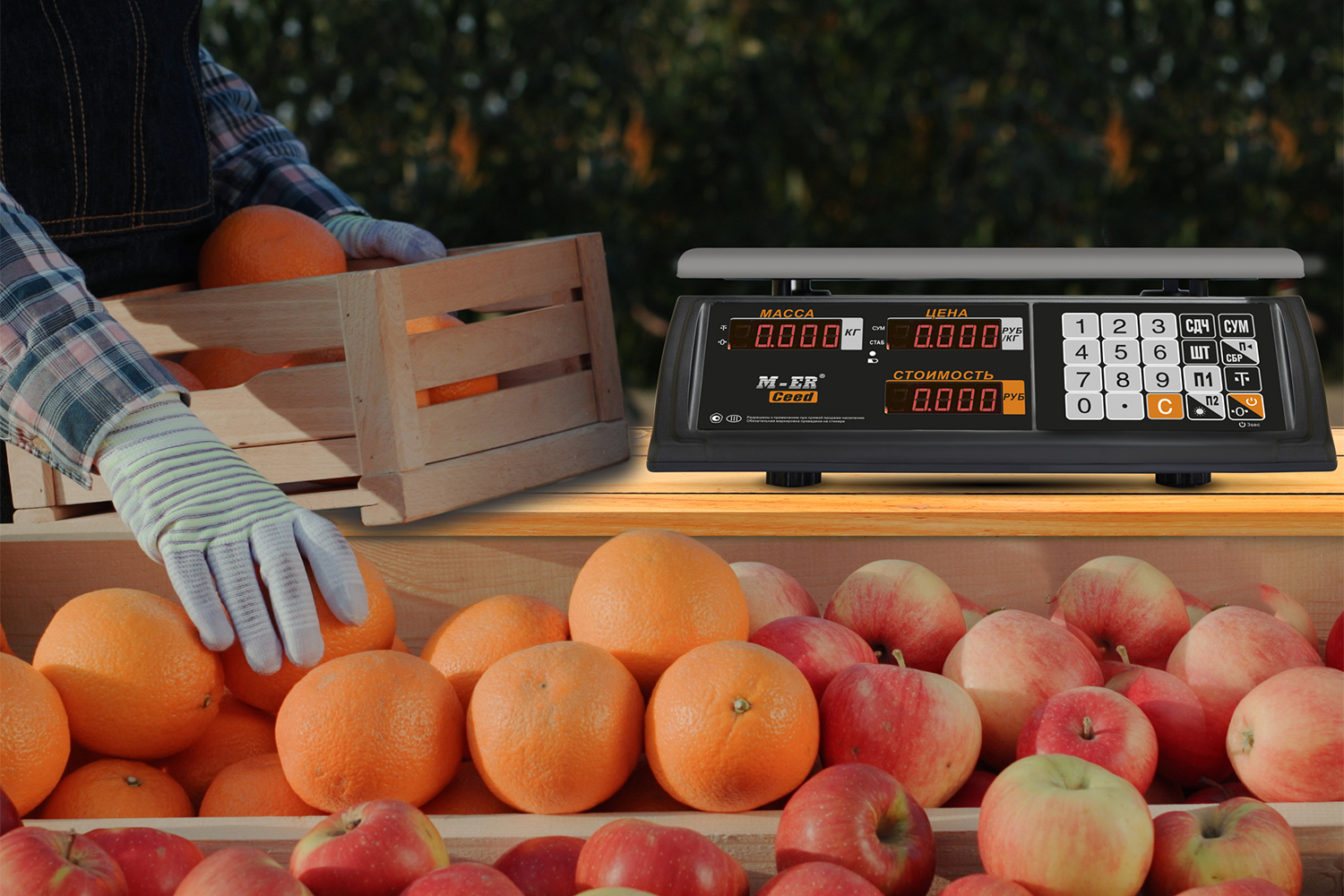
Floor scales
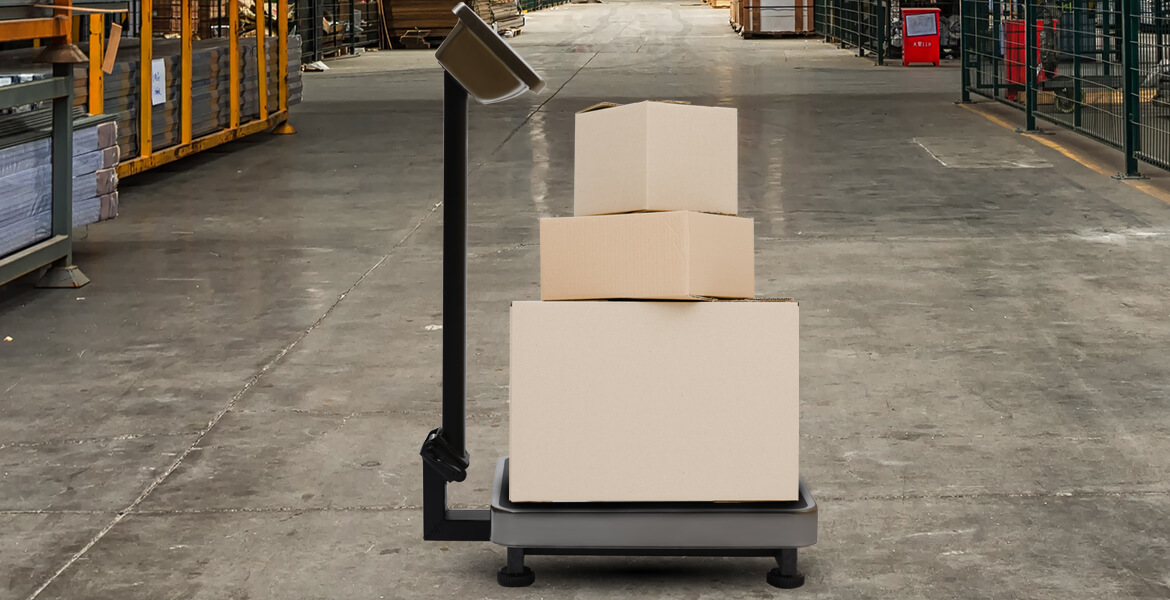
The MERTECH line includes all four scale categories: from lightweight benchtop models to industrial floor-standing solutions. This allows you to find equipment to suit any business need in Uzbekistan.
MERTECH Trade Scales: Everything for Fast and Accurate Sales
Trade scales are an indispensable tool in retail. These devices not only measure the weight of goods but also automatically calculate their price based on a set price per kilogram. Thanks to the dual-sided display, both the buyer and seller can simultaneously see the weight, price per kilogram, and total purchase amount.
MERTECH scales are specially designed to speed up processes at retail outlets. They are certified in Uzbekistan and officially approved for use in stores and markets.
Main Features of MERTECH Retail Scales
- Dual display – results are visible to both the seller and the customer simultaneously.
- Product memory – programmable slots for common items (vegetables, bread, meat, nuts, etc.).
- Change calculator – the cashier sees how much money to return to the customer.
- Sum mode – multiple purchases can be combined into one transaction.
- Tare counting – allows you to subtract the weight of packaging (plastic boxes, bags).
- Models with a receipt printer – print price tags or sales receipts on the spot.
All this makes MERTECH retail scales an ideal choice for grocery stores, minimarkets, bakeries, and street vendors in Uzbekistan. The scales easily adapt to various business formats—whether it's a convenience store in Samarkand, a bazaar stall in Namangan, or a bakery in Tashkent.
The simplicity of the interface, high accuracy, and reliability make MERTECH retail scales popular among entrepreneurs across the country.
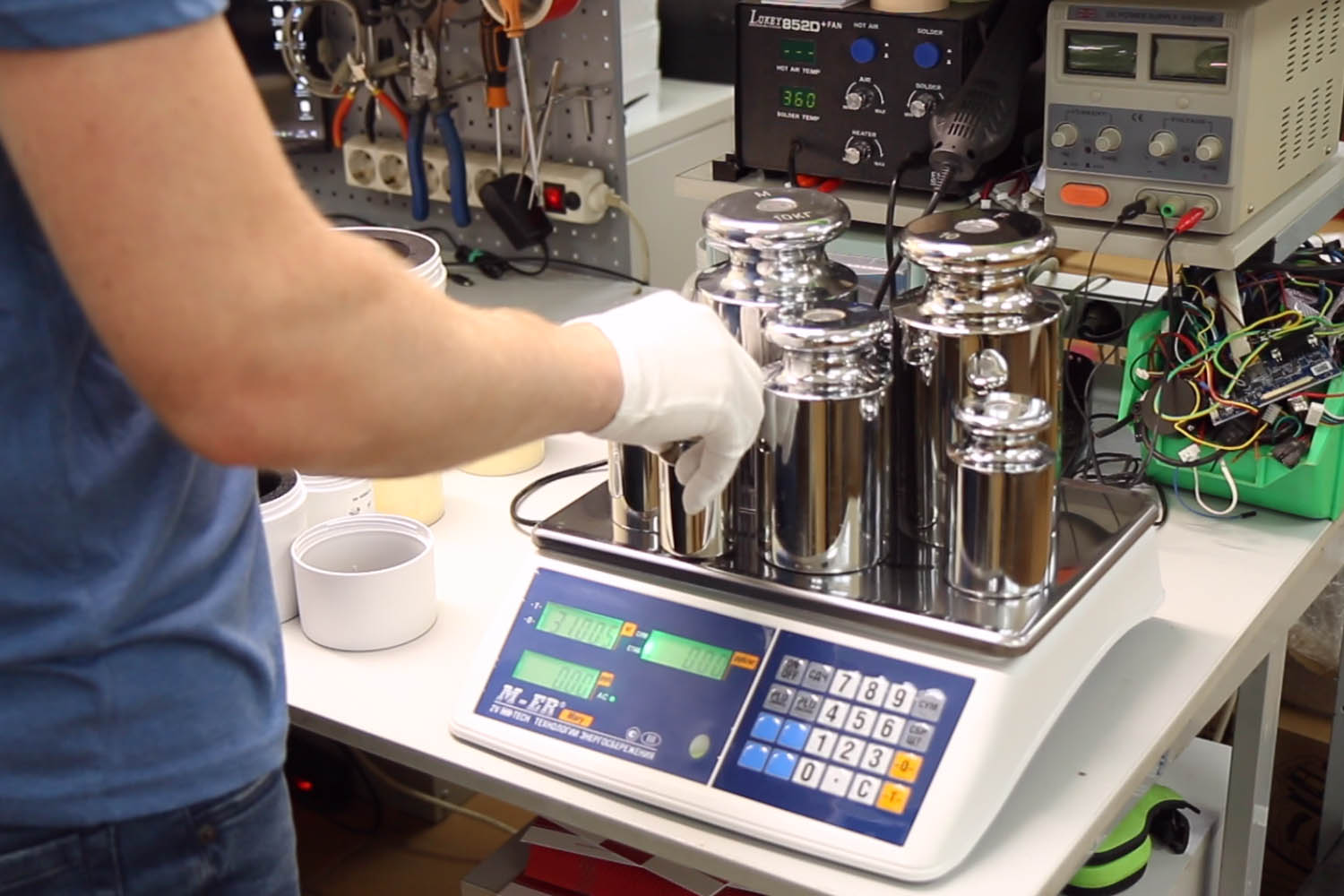
Packing scales: accuracy and simplicity
Packing scales differ from retail scales in that they have only a single display and an extremely simple interface. They don't calculate the product price or display information to the customer—all attention is focused on accurately measuring weight.
These scales are extremely convenient for employees when packing, sorting, and monitoring product weight. Their ease of operation allows them to be used even without specialized staff training.
Where are packaging scales used?
- In the warehouse—for packing goods into boxes and containers.
- On the sales floor—as a check scale accessible to customers.
- In the production floor—for packing semi-finished products, ingredients, and finished goods.
- In restaurants and delicatessens—for accurately weighing ingredients and finished dishes.
In Uzbekistan, MERTECH packaging scales are especially popular for packaging fresh vegetables, fruits, herbs, and meat products. At markets and grocery stores, packaging takes place directly in front of the customer—it's important that the equipment operates quickly, accurately, and smoothly.
MERTECH packaging models are reliable, certified devices, ready to operate in challenging conditions: fluctuating temperatures, high humidity, or heavy loads.
Benchtop Scales: Compact and Functional
Benchtop scales are a versatile solution for stores of any size. Their compact size allows them to be easily placed at the checkout counter, counter, or display case, without taking up much space. These scales are a must-have tool for everyday retail.
In Uzbekistan, benchtop scales are often found in minimarkets, bakeries, coffee shops, and convenience stores. They are also ideal for self-service areas, where customers can weigh items before paying.
Weighing capacity: 3 to 32 kg
MERTECH offers benchtop scales with various weighing capacities, from 3 to 32 kilograms. This allows you to precisely select a model to suit the needs of a specific location:
- 3–6 kg scales – for bakeries, pharmacies, and small-packaging stores.
- 15 kg scales – for department stores and convenience stores.
- 32 kg scales – for meat, fish, and vegetable products.
MERTECH table scales are distinguished by high accuracy, fast sensor response, and a modern design. They are convenient to use in everyday work, even with high customer traffic.
Floor scales: for warehouses and wholesalers
Floor scales are specialized weighing equipment designed for handling heavy and bulky loads. MERTECH's product range includes models with a maximum weighing capacity of 60 to 600 kg, making them indispensable for warehouse logistics and wholesale trade in Uzbekistan.
These scales are widely used in logistics centers, warehouses, agro-industrial bases, wholesale markets, as well as in workshops and packaging lines. They allow for quick product packaging, batch weight verification, and acceptance.
Industrial Durability and Protection
MERTECH floor scales feature a reinforced platform design, resistance to mechanical impact, and IP54–IP65 protection ratings. This means:
- Dust, moisture, and dirt resistance – ideal for use in open and poorly heated warehouses.
- Withstands impacts, drops, and overloads – thanks to a reinforced platform and housing.
- Large platform area – convenient for weighing pallets and large containers.
All MERTECH floor scales are certified in Uzbekistan and can be officially used for commercial purposes – in warehouses, wholesale trade, and manufacturing.
By choosing MERTECH floor scales, you receive reliability, accuracy, and stable operation even in the most challenging operating conditions.
How to Understand Which Scale You Need
To select the right scale for a store or warehouse in Uzbekistan, it's important to consider your specific operating conditions and tasks. Below is a step-by-step guide to help you navigate the process.
1. What are you planning to weigh?
The first thing you need to determine is the type of cargo:
- Food products - retail or packaging scales are suitable.
- Packaged boxes - it's better to choose tabletop or floor scales.
- Pallets and heavy loads - floor scales with a higher weighing capacity are required.
2. Where will the device be used?
The installation location directly influences the choice of model:
- In-store — dual display, fast receipt printing, and integration with the POS system are important.
- In-warehouse — models with increased durability, dust protection, and filling and tare modes are suitable.
- In-store or display cases — compactness and display brightness are important.
3. Do you need integration with an accounting system?
If you use 1C, POS, WMS, or other accounting systems, consider models that can connect to a PC via:
- COM port (RS-232),
- USB or USB-HID,
- Ethernet,
- Bluetooth — for wireless data transfer.
Some MERTECH models already come with the option of direct integration with 1C and cash register software.
4. What is the scale's load capacity and how often will it be used?
Consider how often you will use the scale and under what load conditions:
- For high customer traffic, choose models with a fast response, item memory, and a change function.
- For continuous packaging, industrial models with a highly protected housing and a long battery life are suitable.
- For mobile sales, lightweight, self-contained models with a long battery life are suitable.
Important: All MERTECH scales presented on our website have been certified in Uzbekistan and meet the requirements for official use in trade and logistics.
When should you choose a counter scale?
Counter scales are a popular choice for stores with high customer traffic. This form factor provides maximum visibility of weighing results for both the clerk and the customer.
Advantages of models with a stand
- Convenient display location – information is visible at eye level, eliminating the need to bend over to use the scale.
- Clean and protected screen – the screen is less likely to get dirty when handling raw or bulk products.
- Speedier service – information is read faster, reducing queues.
- Increased reliability – screens are located above the product area, reducing the risk of mechanical damage.
Removable and adjustable stands
Some MERTECH models come with removable or folding stands. This is convenient for those who use scales in both stationary and mobile retail.
The adjustable stand height is another advantage: the display can be customized to suit the specific needs of the point of sale.
Who would benefit from a stand-up model?
- Convenience stores, mini-markets, and market stalls.
- Bakeries, delicatessens, and high-traffic retail pavilions.
- Stationary locations with limited space for equipment installation.
Important: If the scale will be used in the same location, a stand-up model will provide convenience and a longer service life due to reduced wear on the display and housing.
When should you choose a stand-up scale?
A stand-up scale is the optimal choice for stores where convenient visual control of the weighing process is important. Thanks to the high display position, the weight and price information is clearly visible to both the salesperson and the customer.
Advantages of models with a stand
- Improved visibility – especially important in markets, fairs, and stores with heavy customer traffic.
- Clean display – the display is located above the weighing platform, reducing contact with dirty or damp goods.
- Ease of use – the cashier can quickly and accurately read information without being distracted from the customer.
Removable stands and adjustable height
Many MERTECH models are equipped with removable or folding stands. This is convenient for transporting the equipment or using it in mobile sales.
And if you need customization for a specific workspace, choose a scale with an adjustable stand height. This allows you to adjust the display to the optimal height of your desk or stand.
Installation Recommendations
- Use models with a counter in stores with a permanent checkout area.
- Choose these scales if you handle wet, bulk, or dirty products (vegetables, fish, meat).
- For high-volume checkouts, a counter increases convenience and speeds up the sales process.
Tip: If counter space is limited, but maintaining comfort and cleanliness is important, a scale with a removable counter is a versatile solution.
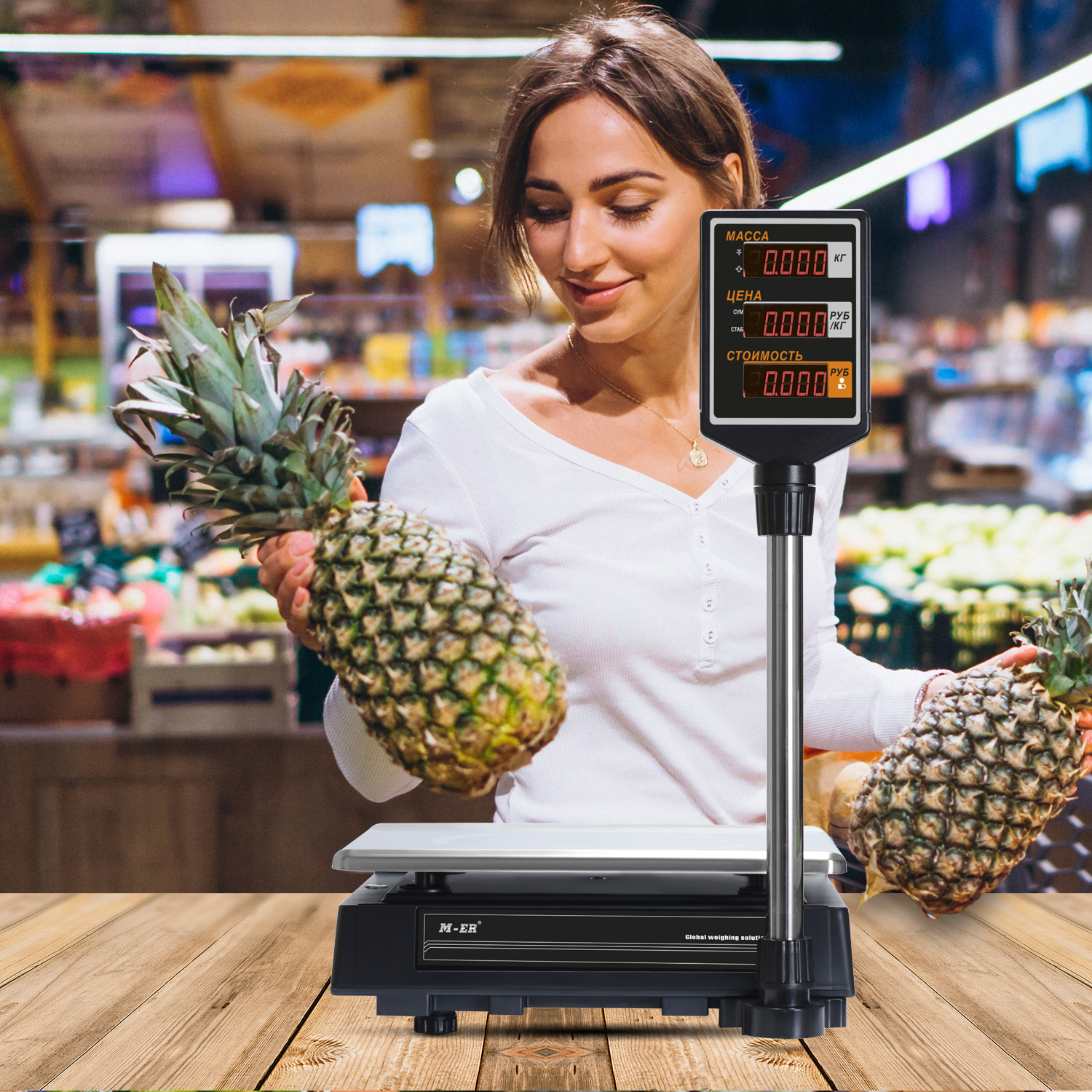
What's Important When Choosing Warehouse Scales
Warehouse scales must be not only accurate but also reliable. In Uzbekistan—especially in regions with variable temperatures, dust, and high humidity—choosing scales requires a special approach.
Is Class 3 Accuracy Required?
Yes, Class III accuracy scales according to GOST are suitable for most warehouse tasks—packaging, receiving, and shipping. This is the optimal solution in terms of price-to-accuracy ratio. Class II scales are used extremely rarely, and are used in laboratories or the jewelry industry.
Do I need a counting mode and tare subtraction?
If you're packing individual items (nails, fasteners, parts), the piece counting mode by weight will greatly simplify your work. Simply enter the weight of one unit, and the device will automatically calculate the quantity in the batch.
The tare function allows you to exclude the weight of tare containers—boxes, crates, and pallets—from the calculation. This is especially important when handling packaged products.
Operating Conditions
- Temperature: In unheated warehouses, scales should operate at -10°C or lower in winter.
- Dust and Dirt: Dust protection is essential, especially in warehouses containing building materials, flour, and grains.
- Humidity: If the warehouse is located outdoors or near water, a moisture-resistant enclosure is required.
For warehouses in Andijan, Navoi, Namangan, and other regions with aggressive environments, we recommend MERTECH scales with an IP54 or IP65 enclosure protection rating. They are dust-resistant, drip-resistant, and suitable for daily use in industrial environments.
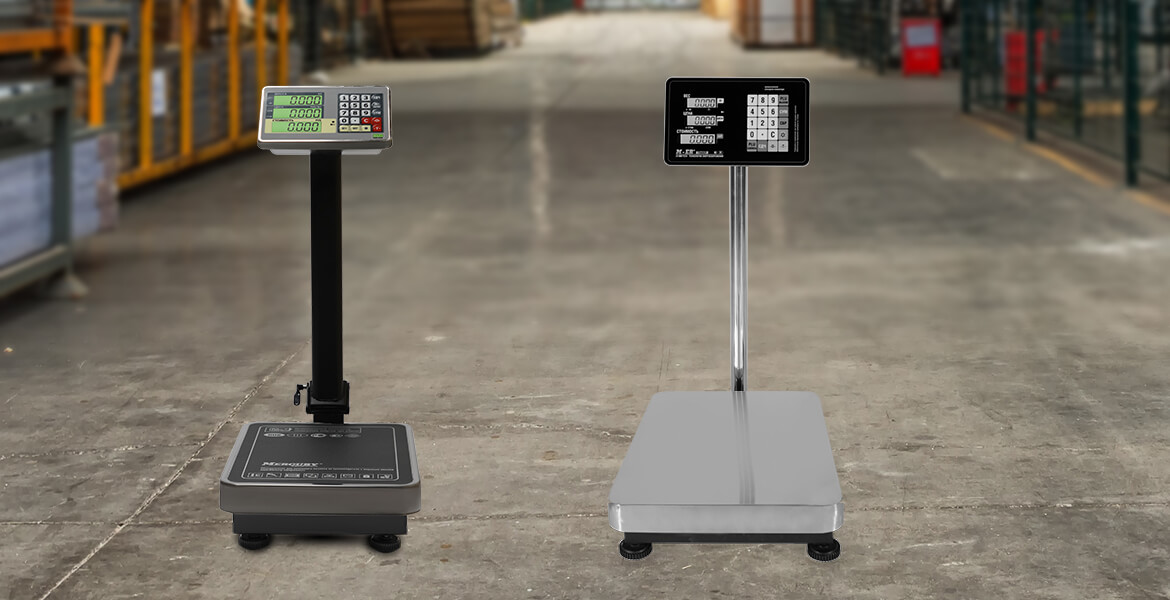
How to choose by maximum weighing limit (MWL)
One of the key parameters when choosing a scale is the maximum weighing limit (MWL). It determines the load the equipment can handle without losing accuracy and reliability.
What margin should I choose?
When choosing a scale for a warehouse or store, it's important to consider not only the typical load weight but also the maximum load weight. We recommend including a margin of 15–20% of the expected weight. This reduces the risk of overload, extends the life of the device, and improves measurement accuracy.
For example, if you plan to weigh 50 kg bags, choose a scale with a minimum weighing capacity of 60 kg.
How does the minimum weighing capacity affect accuracy?
The higher the minimum weighing capacity, the higher the resolution—the minimum measurement increment. This means that a high weighing capacity may reduce accuracy when working with lightweight items. For example, a 300 kg scale typically has a resolution of 100 g, which is unacceptable for packaging small items.
Important: Don't over-select a minimum weighing capacity if you primarily work with lightweight items.
Platform for Pallets and Bags
When weighing large-sized containers—pallets, bags, and boxes—not only the load capacity but also the platform size is important. The scale must ensure stable placement of the load. The MERTECH line includes floor-standing models with a wide platform suitable for standard pallets.
These solutions are especially suitable for agro-industrial complexes, wholesale markets, and logistics centers in Uzbekistan.

